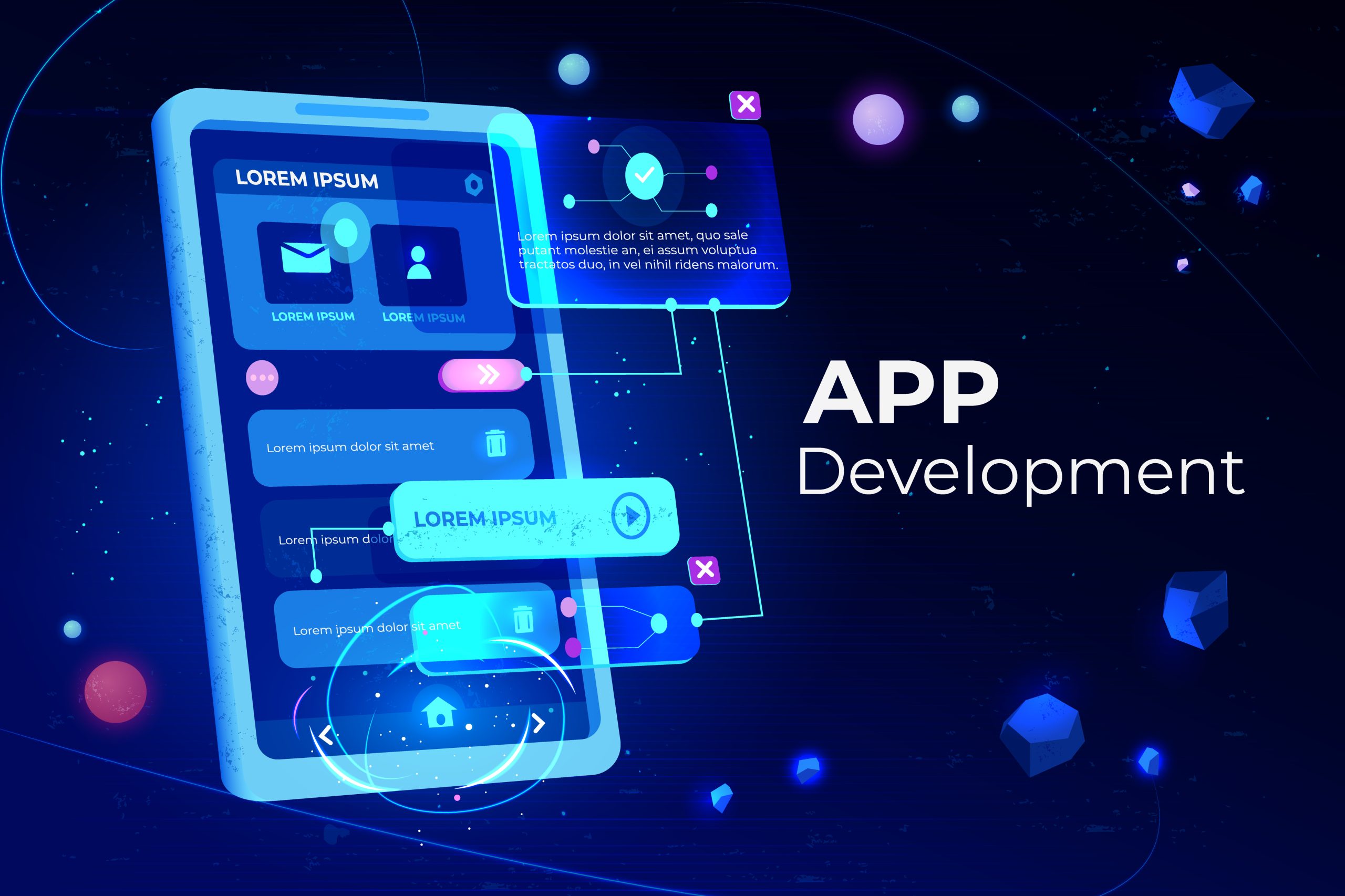Android App Development
Certification Training
"Brewing Ideaz" offers a focused "Android App Development" training, perfect for those aspiring to build mobile apps. The course covers Android Studio, Java and Kotlin programming, UI design, and API integration. Emphasizing hands-on experience, it equips learners with the skills to develop and launch Android applications, making it ideal for anyone eager to dive into mobile app development.

Android App Development
Certification Training
"Brewing Ideaz" offers a focused "Android App Development" training, perfect for those aspiring to build mobile apps. The course covers Android Studio, Java and Kotlin programming, UI design, and API integration. Emphasizing hands-on experience, it equips learners with the skills to develop and launch Android applications, making it ideal for anyone eager to dive into mobile app development.
About Course
“Brewing Ideaz” offers a specialized “Android App Development” training program, meticulously crafted to guide learners through the intricacies of developing applications for the Android platform. The training kicks off with the “CORE JAVA” module, where participants delve into the fundamentals of Java programming. This foundational knowledge is critical, as Java is a primary language for Android development. This module ensures a solid grasp of object-oriented programming concepts, essential for creating robust and efficient Android apps.
The next phase of the training focuses on “JSON/XML API (PHP & MYSQL).” In this module, learners are introduced to the integration of backend services using PHP and MySQL. This is crucial for developing dynamic applications where data interchange between the app and a server is necessary. Trainees learn how to handle data formats like JSON and XML, which are fundamental for web communication and data manipulation within Android applications.
The final parts of the training encompass “UI & UX Design” and “App Publishing & Google Play Console.” The UI & UX Design module equips participants with the skills to create aesthetically pleasing and user-friendly interfaces, an essential aspect of successful app development. This knowledge is pivotal in ensuring that the applications not only function well but also provide an engaging user experience. The course culminates with the “App Publishing & Google Play Console” module, guiding learners through the nuances of launching their applications on the Google Play Store. This includes understanding the Google Play Console, optimizing apps for better visibility, and the publishing process, providing a comprehensive end-to-end understanding of the Android app development lifecycle.
Key Features
You will get 100% job Assurance and life time e-placement support
You will get 3 year Dedicated placement support
Classed taken by globally certified trainers
Courses are globally recognized & accredited
Modules
The “CORE JAVA” module in Brewing Ideaz’s “Android App Development” training is specifically tailored to equip learners with the foundational skills and knowledge essential for Android app development. Here’s an overview of the CORE JAVA module in the training:
Introduction to Java
- Understanding Java’s role in Android development.
- Setting up the Java development environment.
- Basic Java syntax and program structure.
Java Fundamentals
- Data types, variables, and operators.
- Control structures such as loops and conditionals.
- Understanding and implementing arrays and strings.
Object-Oriented Programming (OOP)
- Core concepts of OOP: classes, objects, inheritance, encapsulation, and polymorphism.
- Building and using Java classes and objects.
- Advanced topics like abstract classes and interfaces.
Java Collections Framework
- Introduction to collections and generics.
- Utilizing lists, sets, and maps for data management.
- Understanding and implementing comparators and sort algorithms.
Exception Handling and Debugging
- Techniques for handling errors and exceptions.
- Best practices for debugging Java applications.
File I/O and Serialization
- Basics of Java input/output (I/O) operations.
- Reading from and writing to files.
- Understanding object serialization and deserialization.
Multithreading and Concurrency
- Principles of multithreading and thread management.
- Synchronization and thread safety.
- Concurrent programming in Java.
Java for Android Development
- Specific Java features used in Android.
- Overview of Android SDK and its integration with Java.
- Best practices for using Java in Android app development.
Throughout this module, learners will engage in hands-on exercises and projects, implementing Java concepts in practical scenarios. This module is designed to build a strong foundation in Java programming, focusing on aspects that are directly applicable to Android app development. By the end of this module, participants will be proficient in Core Java and ready to apply these skills in creating Android applications.
The “JSON/XML API (PHP & MYSQL)” module within Brewing Ideaz’s “Android App Development” training program is designed to equip learners with essential skills in integrating backend services using PHP and MySQL for Android applications. Here’s an overview of the module:
Introduction to Web Services
- Understanding the role of web services in mobile applications.
- Overview of JSON and XML as data interchange formats.
- Basics of RESTful APIs and their importance in mobile app development.
PHP for Backend Development
- Setting up a PHP environment.
- PHP syntax and fundamental programming concepts.
- Developing simple PHP scripts to handle HTTP requests.
MySQL Database Management
- Basics of relational databases and MySQL.
- Designing and creating databases and tables.
- Performing CRUD (Create, Read, Update, Delete) operations using MySQL.
Integrating PHP and MySQL
- Connecting PHP to a MySQL database.
- Writing PHP scripts to query the MySQL database.
- Handling and manipulating database results in PHP.
Creating JSON/XML APIs with PHP
- Generating JSON and XML responses from PHP scripts.
- Best practices for developing scalable and secure APIs.
- Understanding how to handle JSON and XML requests and responses.
API Testing and Debugging
- Tools and techniques for testing APIs.
- Debugging common issues in API development.
Consuming APIs in Android
- Fetching and parsing JSON/XML data in Android apps.
- Implementing network communication in Android using HTTP clients.
- Handling asynchronous tasks and data synchronization.
Real-world Application and Security
- Building a real-world application scenario using PHP, MySQL, and JSON/XML APIs.
- Implementing basic security measures for API endpoints.
Throughout the module, participants will engage in practical exercises and projects, simulating real-world scenarios where they integrate Android applications with backend services. This module is crucial for learners to understand how Android apps communicate with servers, manage data, and provide dynamic content to users. By the end of this module, students will be proficient in creating and using JSON/XML APIs with PHP and MySQL for Android app development.
The “UI & UX Design” module in Brewing Ideaz’s “Android App Development” training program is meticulously crafted to provide learners with a comprehensive understanding of user interface (UI) and user experience (UX) design, specifically tailored for Android applications. This module is vital for ensuring that apps are not only functional but also visually appealing and user-friendly. Here’s an overview of the module:
Fundamentals of UI/UX Design
- Understanding the principles of UI and UX design.
- The difference between UI and UX, and how they work together.
- Importance of user-centric design in mobile applications.
Designing for Android
- Overview of Android design guidelines and standards (Material Design).
- Adapting UI designs for different Android screen sizes and resolutions.
- Designing for accessibility and inclusivity.
Tools and Techniques for UI Design
- Introduction to popular UI design tools (e.g., Sketch, Adobe XD, Figma).
- Creating wireframes, mockups, and prototypes.
- Color theory, typography, and layout in the context of mobile design.
User Experience Design Process
- Research methods for understanding user needs and behaviors.
- Developing user personas and user journey maps.
- Techniques for conducting usability testing and gathering feedback.
Interactive Design and Animation
- Principles of interaction design for mobile apps.
- Implementing animations and transitions to enhance user experience.
- Responsive and adaptive design strategies.
Collaboration and Communication
- Working effectively with development teams.
- Communicating design ideas and prototypes.
- Iterative design process and incorporating feedback.
Practical Application and Projects
- Hands-on projects focusing on UI/UX design for Android applications.
- Real-world case studies and design challenges.
- Portfolio development to showcase design skills.
Throughout this module, participants will engage in a series of practical exercises, projects, and case studies, ensuring they apply the theoretical knowledge to real-world scenarios. This hands-on approach is designed to prepare learners for the challenges of designing intuitive and appealing Android applications, focusing on both aesthetic elements and user experience. By the end of this module, students will be well-equipped to craft effective UI/UX designs, crucial for creating successful mobile applications.
The “App Publishing & Google Play Console” module in Brewing Ideaz’s “Android App Development” training program is specifically tailored to guide learners through the final and crucial stages of Android app development: publishing and managing apps on the Google Play Store. This module is essential for understanding the nuances of app distribution and maintenance. Here’s an overview:
Overview of Google Play Store
- Introduction to the Google Play Store as a platform for app distribution.
- Understanding the Play Store’s policies and guidelines for app submission.
Preparing for App Publishing
- Finalizing the app for release: testing, debugging, and optimizing performance.
- Setting app versioning and building the release-ready APK or App Bundle.
- Creating compelling app listings, including descriptions, graphics, and screenshots.
Using the Google Play Console
- Navigating the Google Play Console interface.
- Setting up a developer account and understanding the developer console’s features.
- Uploading the app and filling in required metadata.
App Store Optimization (ASO)
- Techniques for optimizing app visibility and discoverability in the Play Store.
- Understanding app rankings, keywords, and SEO strategies specific to app stores.
Monetization Strategies
- Exploring different monetization options (e.g., in-app purchases, advertisements, subscriptions).
- Implementing and managing in-app purchases and ads.
Managing App Releases and Updates
- Handling version updates and managing release cycles.
- Using beta testing and staged rollouts for gathering user feedback.
Analyzing App Performance
- Utilizing Google Play Console’s tools for tracking app performance, user ratings, and reviews.
- Making data-driven decisions for app improvements.
Post-Launch Support and Maintenance
- Addressing user feedback and reviews.
- Ongoing app maintenance and updates based on user engagement and performance metrics.
Throughout this module, learners will gain hands-on experience with the Google Play Console, learning how to navigate the complexities of app publishing and maintenance. This includes practical exercises in preparing and uploading apps, managing their lifecycle, and understanding the analytics provided by the platform. By the end of this module, participants will have the skills and knowledge necessary to successfully publish, manage, and grow their Android apps on the Google Play Store.

